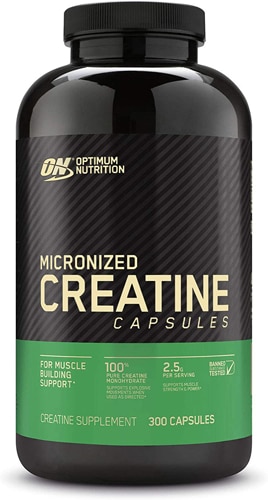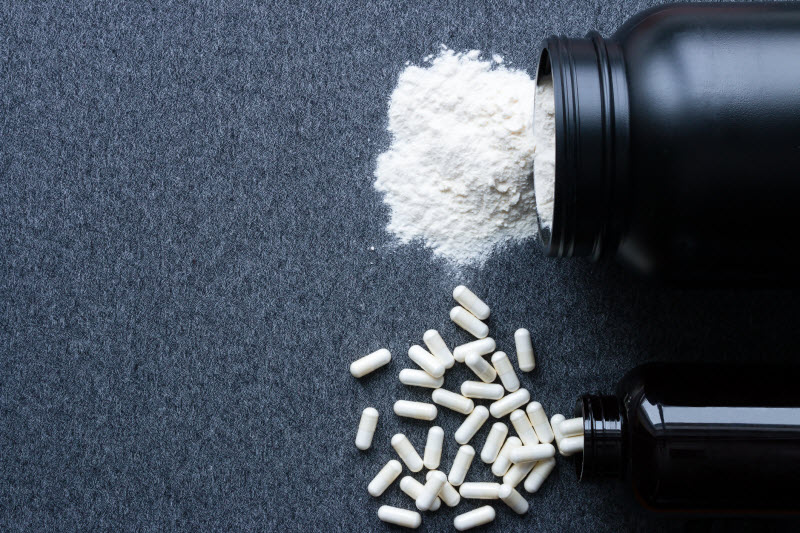From flaxseed and spirulina to beetroot and acai berry, pre-workout supplements and powders contain nutrient-dense ingredients that many athletes and fitness enthusiasts swear by to boost their energy, increase their stamina and maximize their performance during exercise.
The question is: how do you choose a pre-workout regimen to enhance your own fitness performance and results too? Get a better understanding of common ingredients, how they are designed to impact the body, and which pre-workout varieties are the safest and most beneficial to figure out what’s best for you.
What's in pre-workout supplements, and what are their benefits?
To understand how pre-workout supplements can fuel, energize and stimulate the body for intense exertion, it’s helpful to know what is in those supplements first. In addition to the vitamins and minerals from plant-based or whole food extracts, below are some of the main nutritional boosters that pre-workouts usually contain—and the specific benefits they can provide.
Caffeine
Caffeine is a substance that occurs naturally in some plants, and it functions as a stimulant to the central nervous system. When used for pre-workout, caffeine has been shown to delay muscle fatigue, sustain endurance and strengthen the output of anaerobic power, according to the Journal of the International Society of Sports Nutrition. This is due to caffeine’s accelerated oxidation of fat cells which, in turn, reserves muscle glycogen (stored energy content).†
Nitric oxide
This molecule is generally found in pre-workout supplements that contain beetroot juice, and it can promote the delivery of nutrient, blood and oxygen flow to the muscles as they contract, explains the Nutrients Journal. As a result, the muscles are better equipped to metabolize this oxygen which can build cardiorespiratory endurance and increase overall time-to-exhaustion rates.
In other words, nitric oxide can help you maintain a consistent pace, duration and stamina level for longer periods of time. That’s why competitive runners and cyclists often swear by this ingredient.†
Amino Acids
The three amino acids most commonly used in pre-workout supplements are branched-chain amino acids (BCAAs): leucine, isoleucine and valine. What makes them essential ingredients is that the body cannot produce BCAAs on its own. Since BCAAs repair the microtears in muscular tissue that occur from resistance training, taking BCAAs before exercise can accelerate muscle recovery and decrease soreness, suggests Nutrients Journal.†
Creatine
A certain amount of creatine is produced naturally in the liver, but athletes who participate in high-intensity, short duration movements often boost their creatine intake through pre-workout creatine supplements too. Creatine helps synthetize the molecule adenosine triphosphate (ATP) into its more stable counterpart adenosine diphosphate (ATP), according to the International Immunopharmacology Journal, which sparks a chemical reaction to maximize the energy required for quick bursts of explosive action.†
What should you look for (and avoid) in a pre-workout supplement?
Since the Food and Drug Administration (FDA) does not regulate the safety and efficacy of nutritional supplements, it’s crucial to choose a pre-workout brand from a reputable source that has been endorsed by the National Science Foundation and meets the standard for Good Manufacturing Practices (GMP). You will see a seal on the product if the product does meet the GMP standards.
While many pre-workout supplements and powders contain healthy vitamins, minerals, herbs and botanicals, some options on the market have risky ingredients too. Here is a list of the additives to steer clear of in order to choose a safe and nutritious pre-workout to advance your fitness goals.
- Genetically modified organisms (GMOs)
- Refined sugar and artificial sweeteners
- Unnatural flavor and color agents
- Dairy, gluten or soy (if you are sensitive)
- Animal byproducts (if you are avoidant)
In addition, it’s also important to be mindful of how much caffeine a pre-workout brand contains. While most active and healthy adults can handle as much as 400 mg of caffeine on a daily basis, exceeding that limit can result in sleep disturbances, reproductive issues, cardiovascular problems and, in some cases, reduced brain function, cautions Frontiers in Psychiatry.
When you examine the nutrition label to make sure a supplement is free of those unwanted ingredients, check the amount of caffeine as well.
Choosing your pre-workout regimen
Get familiar with the typical pre-workout ingredients that you do want—and the ones you don’t—to choose the products that work for your needs and keep you safe.
With the right regimen, you may be feeling stronger and more energetic, allowing you to build more muscle and have a better workout.
†These statements have not been approved by the Food and Drug Administration. These products are not intended to diagnose, treat, cure or prevent disease.




